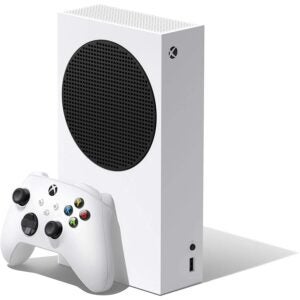While Meta has embraced its role as the kings of affordable mixed reality in the presence of the Apple Vision Pro‘s sizeable expense, that doesn’t mean it’s giving up an advanced augmented reality experience.
According to a new report, Meta is planning to follow up the successful Quest 3 launch by showcasing what’s next in the pipeline.
Business Insider sources say Mark Zuckerberg wants to showcase “true” AR specs before the year is out, more specifically at the annual Connect developer event which usually takes place in the autumn.

Get the Xbox Series S for less than £180 with this code
The Xbox Series S console can currently be had for less than £180 using the eBay code ‘LEAP20’.
- eBay
- Use code LEAP20
- Now £175.91
The report says that while Meta is working on having a working prototype of the device codenamed “Orion” ready for Connect, a full consumer launch may be years away.
Such a device would go well beyond what Meta is already doing with its collaboration with Ray-Ban. Those smart sunglasses are designed for taking photos and videos and listening to audio without the need for earphones or blocking your ear canals. There’s also integration with a ‘Hey Meta’ AI assistant and integration with the likes of WhatsApp, Messenger and Instagram.
However, there’s nothing offered here in the way of augmented realty. What we’re likely to see from Meta at Connect (if that’s the platform it chooses to offer the preview) is a version AR passthrough technology we’ve seen within the Quest 3 and Quest Pro within a truly minimal form factor that’s more akin to wearing a pair of sunglasses.
That appears to be the end game for augmented reality, or mixed reality, whereby the experiences offer genuine value without the need for wearing a cumbersome headset.
However, the technology required for the experience to be high end is requires a larger build, advanced displays, powerful chipsets and large batteries.
What we see from Meta this autumn could set the table for the future of AR and preview a device we all end up wearing – that so called smartphone replacement.

